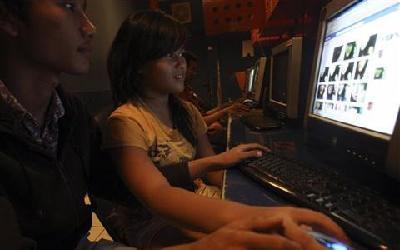
This is the VOA Special English Technology Report.
A new study looks at privacy in a world where computers can increasingly recognize faces in a crowd or online. Alessandro Acquisti at Carnegie Mellon University's Heinz College in Pittsburgh, Pennsylvania, led the study.
Professor Acquisti says social networks like Facebook and LinkedIn represent some of the world's largest databases of identities. He sees increasing threats to privacy in facial recognition software and cloud computing -- the ability to store huge amounts of information in data centers.
ALESSANDRO ACQUISTI: "The convergence of all these technologies -- face recognition, social networks, cloud computing -- and all these advances in statistical re-identification techniques and data mining are creating this world where you can blend together online and offline data. You can start from an anonymous face and end up with sensitive inferences about that person."
Recognition systems measure things like the size and position of a nose, the distance between the eyes and the shape of cheekbones. The software compares lots of images to try to identify the person. This is what the professor means by "statistical re-identification techniques."
Facial recognition programs are used in police and security operations. But the software is increasingly popular in other uses, including social media sites.
For the study, the Carnegie Mellon team used software from Pittsburg Pattern Recognition, or PittPat. Google bought that company last month. The software can recognize faces in photos and videos.
The researchers did three experiments. First, they collected profile photos from a dating website. Its users try to protect their privacy by not listing their real name. But comparing their photos to pictures on Facebook identified one out of ten people.
In the second experiment, the Carnegie Mellon researchers asked permission to take pictures of students on campus. They compared these to photos on Facebook. This time they correctly identified one-third of the students.
In the third experiment, they tried to see how much they could learn about people just from a photo. They found not only names but birthdates, personal interests and even locations, when people listed them. And Professor Acquisti says the technology is only improving.
ALESSANDRO ACQUISTI: "Because face recognizers keep improving accuracy, because cloud computing keeps offering more power, and because more and more images of ourselves are going to be online, we are getting really close to this future where what we did as a proof of concept will be possible to do by anyone on a massive scale."
In June, Facebook launched a facial recognition system to help users "tag" or list the names of people in photos. Germany last month became the first country to declare this software an illegal violation of privacy.
And that's the VOA Special English Technology Report, written by June Simms. Share your thoughts about privacy and technology at voaspecialenglish.com. I'm Steve Ember.
(来源:VOA 编辑:崔旭燕)
